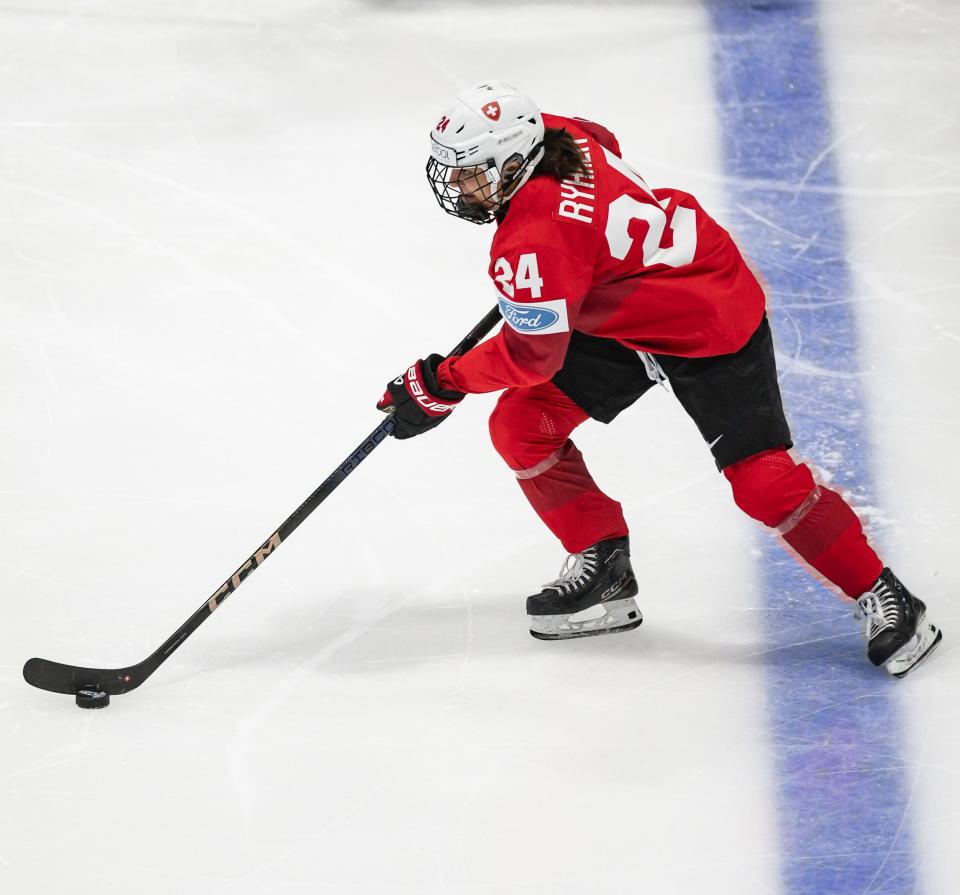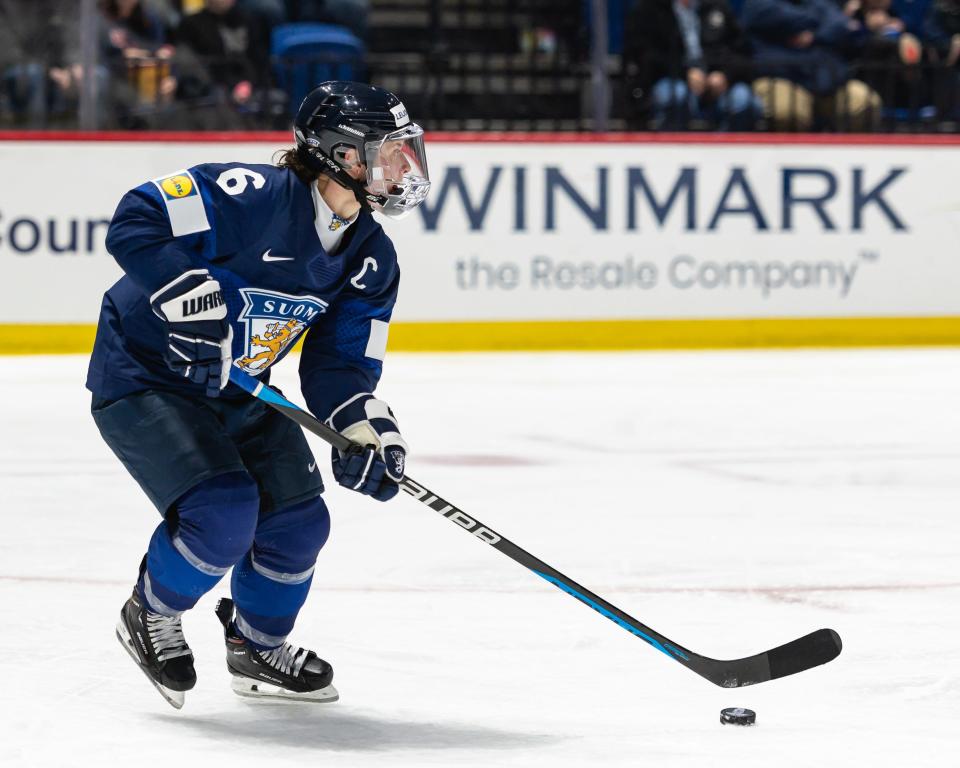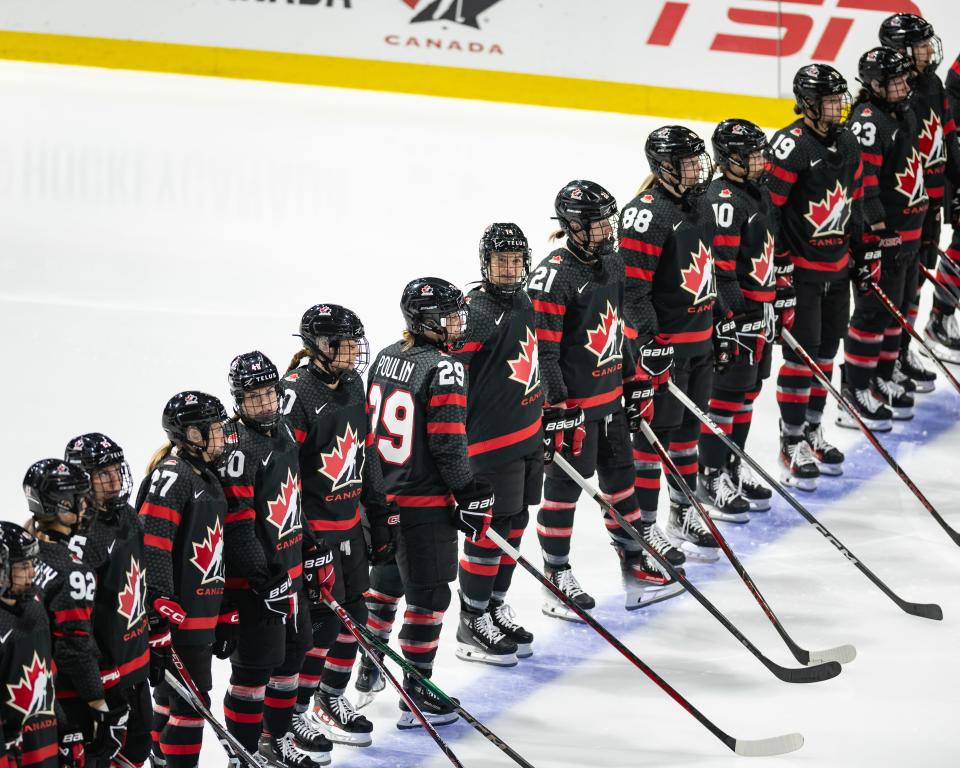World coaches explain why Team USA is the benchmark in global hockey competition
Heading into the final weekend of the 2024 IIHF Women’s World Championship spectators are trying to gauge who will take home gold.
In the past 22 consecutive years the tournament has run, with the exception of Olympic years, the gold-medal game has featured the U.S. and Canada. Other than 2019, when America beat host Finland in the championship round.
After interviewing head coaches from Switzerland, Finland, and Canada results were unanimous; amongst its global competitors Team USA is held as a "benchmark for professional skill."

What do athletes gain from the competition?
Events like these benefit the financial ecosystem of sport; they also warrant exposure, in terms of both publicity and inspiring the next generation of players back home, said Finland women’s national team head coach Saara Niemi. “But, for the athletes, the most important takeaway is the learning experience,” she said.
“When you play at the world championship level you enter into the most elite competition,” Niemi said. “Club teams help train you for the global playing field but once you're there you can’t stop accelerating.”
Gina Kingsbury, Canada women’s national team general manager, agreed.
“This tournament prepares us for the Olympics,” said Kingsbury. “We see where we match up, against other countries, and where we fall short. It highlights where the gaps are which helps us improve. We look forward to this tournament each year; it's a crucial part of the ecosystem for the women’s game.”

A Swiss predicament
According to Cyndy Kenyon, Switzerland women’s national team assistant coach, the championship helps show athletes what they need to compete at a professional level.
“What hurts us, as a country, is we don’t get exposure to this type of high-level play as often as other teams do,” she sighed.
Swiss team manager, Sidney Piaget, went on to further explain the predicament. He pointed out that this year the Switzerland women's team had only three professional athletes on its roster.
“We have a much younger unit to work with,” Piaget said, “We can’t compare our team to Canada or the U.S. since we're in very different situations. Instead, we look to them to come up with solutions. Our country only has 3,000 athletes in our women’s ice hockey league. That has to change.”
To improve engagement, and boost numbers, Piaget said a win is necessary.
“After we won a medal in the Sochi Winter Olympics (2014) our program grew rapidly,” Piaget noted. “We have to aim for that again. Our men's league has the numbers and the funding. These women need to have the will to eat the ice and pay the price. They might not see the improvement but the next generation will.”
Piaget did acknowledge that youth involvement looks “promising. He highlighted the importance that the country maintains its position in group A so it can advance and gain additional funding.

'Competition keeps us improving'
Niemi admitted the Finland women's team, like Switzerland, feels disadvantaged given they aren’t exposed to this type of skill as frequently. She outlined the team's strengths and weaknesses, referring to Team USA as the “gold standard.”
“Over the past decade our skating tempo has improved,” said Niemi. “We used to struggle to keep up with the speed of the other athletes at these championships, but that’s gotten better. We refer to the U.S. as the best so we often compare our game against theirs to see what we should work on.”
Moving forward, Niemi said the team is working to improve shot accuracy after “rushes.”
“We scout out other opponents to see what they do well (or don’t) so we can adapt when we compete,” Niemi added. “The goal is to maintain our identity on the ice so we can keep contributing on the global stage.

'If we don't adapt we'll all get left behind'
Even Kingsbury acknowledged that the Canada women’s team regards their foe counterparts, Team USA, as “inspirational.”
“This tournament presents a platform for the best athletes in the world to compete,” Kingsbury said. “Though often overlooked it impacts the grassroots level as much as it does the global level. It creates a visibility for the game that trickles down to aspiring athletes.”
As stated by Kingsbury, the “veteran team” has played as a unit for years. She noted a few recent wins: the 2021 and 2002 Women’s World Championships as well as the 2022 Beijing Winter Olympics.
“We have solid athletes that know what it takes to win,” said Kingsbury. “We aim to find the neglected 1%. That indicates where we need to refine our skills– and we take that seriously.”
Kingsbury pointed out that competition, across the board, has risen over the years as people have become more invested in the women’s ice hockey game.
“Team USA keeps getting stronger and stronger each year,” Kingsbury emphasized. “And if we don’t adapt we’ll get left behind. That’s why we can’t stop pushing.”
This article originally appeared on Observer-Dispatch: Women's hockey: Coaches explain what makes Team USA so great

